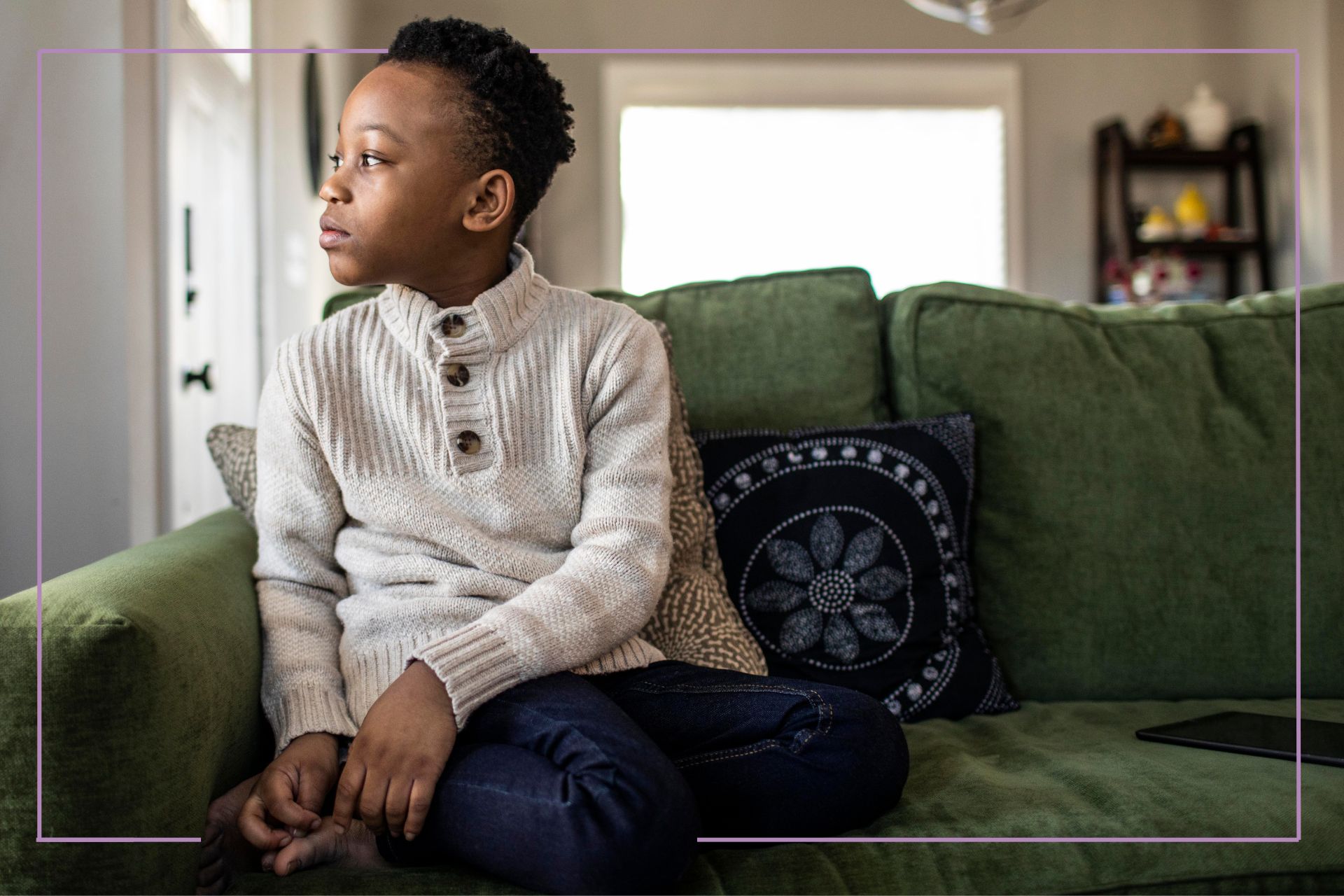
Emotionally intelligent people have self-awareness, empathy, and excellent communication skills - traits that can significantly impact a child's mental health and overall well-being. But how do we, as parents, cultivate these abilities in our children?
Starting a conversation about mental health with kids can be challenging. Younger children may struggle to grasp the concept, while older ones might resist opening up. Yet, equipping our children with emotional intelligence is key to fostering resilience and teaching them to manage and express their emotions effectively, which helps our children's overall mental health. It's even more important in the tumultuous tween and teen years. During this time, it's considered 'normal' for kids to withdraw and shut down, leaving parents feeling even more in the dark about their inner world.
Parenting coach Anisa Lewis emphasises, "Teaching kids emotional intelligence is ultimately helping children to foster an understanding of emotions. By doing this, they can learn to navigate their feelings and those of others, leading to improved mental health and enhanced social skills." This skill set not only aids in conflict resolution and effective communication but also builds positive relationships and bolsters resilience - essential tools for navigating life's challenges.
In this article, we'll explore practical strategies for you to help your child, and even your teenager, develop these crucial skills, uncover ways to bridge the communication gap and equip your kids with the emotional tools they need to thrive.
How to teach children emotional intelligence
1. Label the emotions
Labelling the emotions that your child experiences can give them the vocabulary to talk about how they feel in the future, but it also shows them that you understand what they are going through.
Anisa explains, "Encouraging children to identify and label their emotions helps them understand the wide range of feelings they may experience. This can be done in the moment, through identification from the parents/carers. For example, saying, ‘I can see you are angry’ or ‘That must be really frustrating for you.’"
Anisa adds that you can also add labels to emotions by reading books and stories about feelings with your child.
Psychotherapist and parenting expert Priscilla Bacon agrees, adding, "If children don’t have words for their feelings, then it’s harder for them to understand them and make sense of them. Expand their vocabulary to include all the different words we can use for our feelings and help them to understand the ways of expressing big feelings that are and aren't acceptable in your family home."
2. Validate your child's feelings
Pricilla tells us that asking your children questions about how they feel and showing curiosity towards what they are experiencing is a key way to teach emotional intelligence.
She explains, "When children come to trust and rely on the fact that all their emotions are important and that their parents will always ask about and focus on them, then they will learn to believe in and trust their own feelings - and that builds emotional intelligence."
Priscilla suggests asking questions like 'How did you feel when that happened?' 'I’m trying to imagine if that was uncomfortable for you?' or 'On a scale of 1-10, how comfortable did you feel?' in order to validate your child's feelings.
3. Model active listening
Active listening goes beyond simply hearing the words the person talking is saying, and really concentrating on the message they are trying to get across - including any non-verbal cues. It's an essential communication skill because it helps to better understand another person's point of view.
Anisa explains that by practising active listening when your child is talking, you can teach it to your kids. "Show children how to pay attention to verbal and non-verbal cues when others are expressing their emotions. This skill fosters empathy and helps kids understand different perspectives and feelings," she explains, adding, "It also helps foster the understanding that not all communication is verbal."

4. Use movement
A study published in the journal Learning, Culture and Social Interaction explored how movement helped learning around abstract concepts of emotion when studying two Year 1 classes (children aged 5-6).
Using guided and improvisational dance, movement was used as a mean-making tool to prompt embodied experience and talk. The researchers called the process Developing Understandings of Emotions through Movement (DUEM), and noted that it has the double benefit not only of movement itself, but also of making meanings for complex concepts - such as emotion - through the embodiment and exploration of physical metaphors.
You could try encouraging your kid to express the way they're feeling by using their entire body, helping them to become aware of the emotion they are experiencing by paying attention to the way their body moves and feels.
5. Don't look to solutions
Priscilla explains, "When children have their feelings solved immediately, or are met with expressions like 'oh it's not that bad' or 'you will feel better tomorrow', they don’t learn to be with or feel their feelings."
She adds, "Children need to know that there are times in life when they will feel sad, furious, devastated or that life is terribly unfair and a parent’s job is to help their children learn to feel those feelings rather than to try and negate or get rid of them straight away."
Priscilla explains that children who can bear their feelings are more emotionally intelligent - let them sit in their feelings by listening to them and asking them questions, rather than trying to make things better straight away.
6. Teach empathy
Teaching children to not take things at face value and instead wonder how the feelings of another person might be making them behave is key to fostering emotional intelligence.
Priscilla explains, "When children can understand that people’s behaviour is often influenced by and driven by their feelings, they can start to relate to people in an emotionally intelligent way."
Encourage your kids to think about how another person might have different feeling towards a situation than they do themselves. You could discuss what a film character might be feeling in a certain scene to help teach this skill.
7. Practice mindfulness
"Simple practices, such as deep breathing or guided imagery can provide tools for emotional regulation," explains parenting coach Anisa.
Engaging a child’s senses in the moment is a quick way to bring mindfulness into their experiences and these techniques contribute to a child's overall emotional resilience. Check out these mindfulness activities for kids for inspiration.
8. Show your own emotions
Children need to see emotions being shown and talked about, Priscilla tells us, so it's important that you are able to show yours to them and explain your own feelings.
"Let them know why you suddenly feel angry when the house is in a muddle of toys, or explain why your work meeting was uncomfortable for you," Priscilla says. "They need to see the most important people in their lives have big feelings and can talk about them."
What is emotional intelligence and why is it so important?
Emotional intelligence is a vital skill that can profoundly impact our children's lives, but as parents, we often wonder how to nurture this intangible yet crucial ability.
Deborah French, a cognitive behavioural therapist, reminds us that emotional intelligence begins with self-regulation, a skill that starts developing during those challenging toddler years. Remember those trying tantrum phases? As exhausting as they were, Deborah reassures us that they serve a purpose: "If handled correctly, how you mange this tantrum phase enables your toddler to learn how to develop these self-regulating skills."
It's comforting to know that our efforts during those difficult moments can pay off. As Deborah explains, with proper guidance, "a child will no longer, ever, need to have a tantrum because they will be able to keep themselves calm when things get tough." Imagine the relief of helping your child develop this invaluable skill!
As our children grow, so does their emotional intelligence, and those everyday conversations and playtime interactions with you have a crucial role in helping them.
The beauty of nurturing emotional intelligence in our children is the ripple effect it creates. "When we can show emotional intelligence in our relationships... people want to be around us. They want to be friends with us. They want to connect with us," says Deborah.
In fact, studies show that parents with higher emotional intelligence skills are better able to teach their children emotional awareness, expression, and regulation, leading to improved psychosocial adjustment and healthy friendships in children, as this 2020 Israeli study of hundreds of parents shows.
As parents, isn't this what we hope for our children? By fostering emotional intelligence, we're not just helping our kids manage their feelings - we're setting them up for meaningful relationships that will bring them joy and comfort throughout their lives.
How can I help my teenager develop emotional intelligence?
Are you worried your teen hasn't developed emotional intelligence yet? It's not a skill that is learned just in childhood—it can develop during adolescence, too. According to Deborah, "It is only harder for adolescents if they have not had the opportunity to develop those skills during childhood," but it's still possible.
To help your teenager develop emotional intelligence, it's important to approach them with understanding and patience. Deborah says teaching emotional intelligence during adolescence needs a different approach than in earlier childhood, and it's never too late.
Deborah emphasises that change is possible even in challenging times, which should give us parents some hope! The key is to adapt your methods to suit your teenager's developmental stage. While younger children don't mind listening to their parents' advice and direction, it's often the opposite with teens.
"Emotional intelligence can only be taught during adolescence by giving teenagers the opportunity to choose between right and wrong," says Deborah. "Not as the result of punishment, threats or bribes but through mutual respect and discussion."
Here are some ideas to put this into practice:
- Have regular, open conversations about emotions and social situations
- Encourage your teen to reflect on their choices and any potential consequences
- Model emotional intelligence in your own behaviour
- Create a safe space for your teen to express their feelings without judgement
- Offer guidance or advice if you're asked to, but let your teen to come to their own conclusions
Developing emotional intelligence is a gradual process, but having a respectful and supportive relationship with your teen will help lay the groundwork for their emotional growth and maturity.
Featured experts
In other news, here's how to help your child use their voice, and these are the six signs your kid has 'high emotional intelligence'. Elsewhere, there are five reasons to let your kid fail, according to a teacher, and these are the eight types of play your kid needs to support their development.







